I'm developing a app that allows teachers to record their students' lessons. Using Firebase Rules I want to allow teachers access to certain schools. I have the following Rules:
{
"rules": {
"Schools" : {
"$schoolId" : {
".read" : "data.child('Teachers').hasChild(auth.uid)",
".write" : "data.child('Teachers').hasChild(auth.uid) ||
root.child('User').child(auth.uid).child('Invitation').exists()"
}
},
"Users" : {
"$uid" : {
".read" : "auth.uid === $uid",
".write": "auth.uid === $uid"
}
}
}
}
In the simulator everything works fine, but when firing the below all permissions are denied to all schools.
DataService.ds.REF_SCHOOLS.observeSingleEvent(of: .value) { (snapshot) in
MySchools.mySchoolKeyList.removeAll()
MySchools.mySchoolList.removeAll()
if let snapshot = snapshot.children.allObjects as? [DataSnapshot] {
for snap in snapshot {
if let recordDict = snap.value as? Dictionary<String, AnyObject> {
if let name = (recordDict["SchoolName"] as? String) {
MySchools.mySchoolList.append(name)
}
MySchools.mySchoolKeyList.append(snap.key)
}
}
if MySchools.mySchoolList.isEmpty {
MySchools.mySchoolList.append("You do not belong to any schools.")
}
}
}
Below is snapshot of the Firebase database for reference:

Does anyone know what's wrong with my rules? Also how to handle the permission denied result would be appreciated.